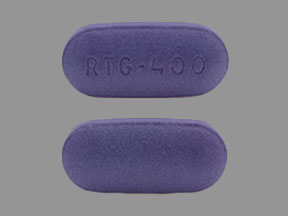Potiga and Alcohol/Food Interactions
There is 1 alcohol/food/lifestyle interaction with Potiga (ezogabine).
Ezogabine Food/Lifestyle
Moderate Food Interaction
GENERALLY AVOID: Alcohol may increase the plasma concentrations of ezogabine. In a study of healthy volunteers, the administration of ezogabine 200 mg in combination with ethanol 1g/kg (5 standard alcohol drinks) over 20 minutes resulted in an increase in the ezogabine peak plasma concentration (Cmax) and systemic exposure (AUC) by 23% and 37%, respectively.
Food does not significantly affect the bioavailability of ezogabine. According to the product labeling, high-fat food does not affect the extent to which ezogabine is absorbed, but increases peak plasma concentration (Cmax) by approximately 38% and delays the time to reach peak concentration (Tmax) by 0.75 hour.
MANAGEMENT: In general, alcohol consumption should be avoided or limited during treatment with CNS-depressant agents. Patients should be advised of the potential for increased dose-related adverse reactions of ezogabine (e.g., dizziness, somnolence, nausea, constipation, urinary retention, blurred vision, memory impairment, tremor) when taken with alcohol, and to avoid hazardous activities that require mental alertness and motor coordination until they know how the medication affects them. Ezogabine can be taken with or without food.
References (1)
- (2011) "Product Information. Potiga (ezogabine)." GlaxoSmithKline
Switch to consumer interaction data
Potiga drug interactions
There are 466 drug interactions with Potiga (ezogabine).
Potiga disease interactions
There are 8 disease interactions with Potiga (ezogabine) which include:
- suicidal tendency
- alcoholism
- hepatic impairment
- hyperbilirubinemia
- QT prolongation
- renal impairment
- retinal abnormalities
- urinary retention
More about Potiga (ezogabine)
- Potiga consumer information
- Check interactions
- Compare alternatives
- Drug images
- Side effects
- Dosage information
- During pregnancy
- FDA approval history
- Drug class: neuronal potassium channel openers
- Breastfeeding
Related treatment guides
Drug Interaction Classification
| Highly clinically significant. Avoid combinations; the risk of the interaction outweighs the benefit. | |
| Moderately clinically significant. Usually avoid combinations; use it only under special circumstances. | |
| Minimally clinically significant. Minimize risk; assess risk and consider an alternative drug, take steps to circumvent the interaction risk and/or institute a monitoring plan. | |
| No interaction information available. |
See also:
Further information
Always consult your healthcare provider to ensure the information displayed on this page applies to your personal circumstances.


